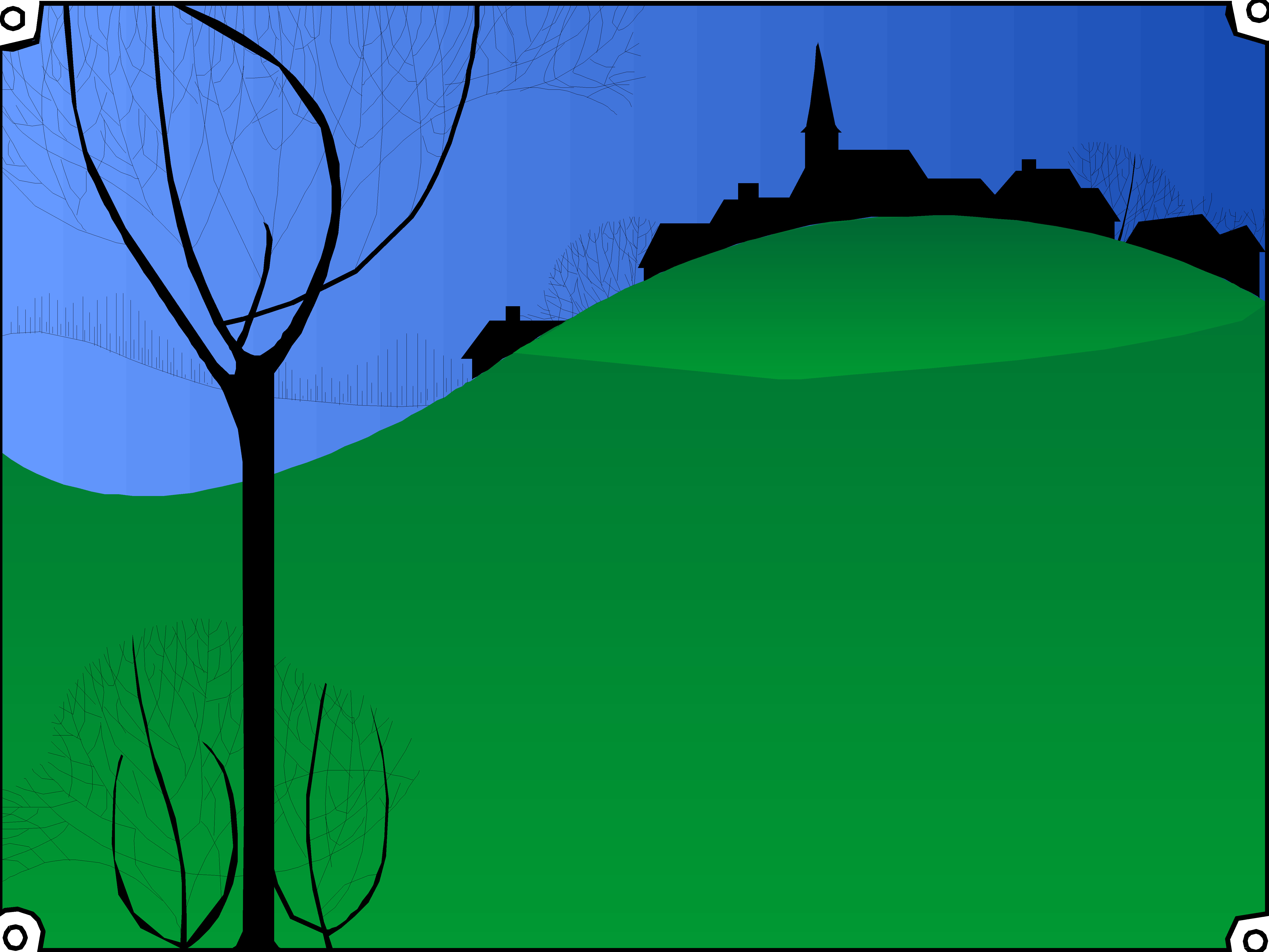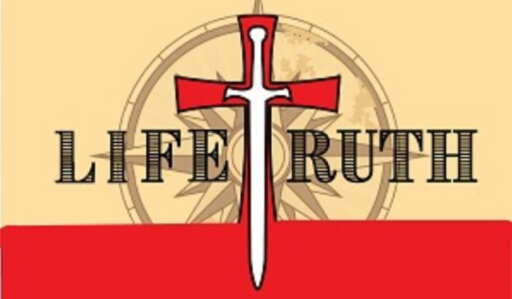Or, What happened with Jesus?
Based on how different Christian faiths view the Apostles’ Creed Though differences have emerged, all the conflict isn’t limited to party lines between Catholic and Protestant.

Article 5. On the third day he rose again from the dead:
All Christian faiths can agree the event of his resurrection seals the victory over the death on the cross that paid for eternal sins in the first place. The gospel of what God’s grace accomplished through Jesus, offers salvation to those who believe in him. But not all agree on how salvation is secured or applied to the believer. There is also a big difference in what the purpose of God’s grace means.
Most protestants acknowledge that man is Depraved and lost in a sinful nature under judgment. Without outside help, there is no other destination. By grace alone, by Christ payment alone, the Holy Spirit works conviction, repentance, leading to a transforming faith. The process is a Substitutionary penalty for all but is effective only to those responding to the spirit’s call.
The Protestant divergence on eternal security.
- Calvinist leaning faiths say its secure. Salvation can’t be lost.
- Those in General, or free will, or Arminian faiths say salvation can be lost by choice.
Is the purpose of grace only focused on eternity with God? How might it have a purpose in life now? God’s grace helps in this life by informing on what Holy living looks like, being sanctified, disciplined, devoted, and helping others to know God as well. Protestants may disagree on what this looks like but might agree it comes from empowerment by the holy spirit.
Catholic. While Jesus was victorious over death, it’s our works that secure salvation. Participating in worship, baptism, taking communion, penance, and others. To stop these daily is fatal. Jesus may have paid the price for sin, but his life serves to be our example to mimic. And we hold the power to maintain graces that preserve us. The sacraments have saving power.
Comparing a few protestant statements of faiths on the redemption of Jesus.
- ABA (American Baptist Association): Jesus’s death is substitutionary for sin, affective to believers. Depraved man is saved by grace alone, through repentance, and faith in Christ.
- SBC (Southern Baptist Convention): Redemption of man is offered freely to all who believe. Jesus paid for all for eternal redemption. Through faith in Christ alone, no other works.
- AG (Assemblies of God): Christ is above all authority, purges sin, sends the Holy Spirit to cause men to confess Christ as lord. Man’s only hope for redemption is Christ’s shed blood.
- The condition of repentance to God is faith in Christ.
- Inward evidence is the witness of the Holy Spirit to our spirit.
- Outward evidence is a life of righteousness and holiness.
- WCM (Wesleyan Congregational Methodist): The process to forgive sin, reconcile man to sanctify, and fully restore him. Grounded in God’s love, through Christ alone, and the work of the spirit.
Article 6. He ascended into heaven, and sits at the right hand of God the Father Almighty:
Traditional Christianity can easily agree this is where Jesus went to at his ascension, and where he will be until his return.
Article 7. From thence he shall come to judge the quick and the dead:
Lots of divergence in belief shows up here. Not so much along party lines, but more in how interpreting scriptural prophecy is managed. One thing is sure. Jesus will return. Believers will be raised and join him for eternity, while unbelievers face judgment. It is mostly the timing of events that are disputed.
- ABA: The bodily resurrection of believers, just as Jesus was bodily resurrected. There is a Pre-millennial return of Christ. Begun with tribulation that ends the gentile age. The faithful are raised to eternal reward at this time. At the Ending of the millennium, the faithful continue in eternity with God, while the rebellious are sent to the lake of fire.
- SBC: In his own time, the world will end, christ will return, the dead raised. Jesus will judge all, the unbeliever by their works and into the lake of fire. The believer with eternal rewards.
- AG: A Pre-Millenial viewpoint described as:
- The Blessed hope. The resurrection of those in Christ who are asleep. Translation of those living in Christ.
- Millenial reign. After the Blessed hope, Christ returns to reign (pre-millenial). Brings salvation to Israel. Establishes universal peace. Final, eternal judgment.
- A New heaven and new earth.
- WCM: In his timing, christ translates his people, and the antichrist is revealed. Wrath is poured out for 7 years. Christ returns for the millennial reign. Pre-millennial. Earth is destroyed, and a new heaven and new earth are created for believers to enjoy God forever.
- Two resurrections. The resurrection of believers at the beginning of tribulation (pre-tribulation rapture).
- Resurrection of the dead, the unbeliever, comes after the millennial kingdom.
- They are judged by works and condemned to the lake of fire.
Catholic: Christ will come again to judge the living and the dead. This article affirms the Second Coming of Christ at the end of the world to be its judge. after the death of any human person.
At death, an immediate private judgment occurs and the person goes directly to heaven, hell, or purgatory. Because man is the union of body and soul, at final judgment: The just go, body and soul, into heaven, and the damned go, body, and soul, into hell.
life everlasting. As Christ Our Savior died, so, too, must mere mortals. As he rose, so shall all human beings. Death is the only way to cross from this life into the next.
Article 8. I believe in the Holy Ghost:
As in belief in God and Christ, all of Christianity makes this statement. The Holy Spirit is a distinct person in the godhead. What he does for us, and how he operates is diverse, mostly ranging along lines from pentecostal movements to conservative doctrines.
- ABA: The administrator of the church. Spiritual gifts have ceased. Only the gifts of faith, hope, and love remain.
- SBC: He inspired prophets, illuminates man to understand truth. Convicts of sin lead to confession, repentance, and works regeneration when he baptizes believers into the body of Christ. He cultivates character, comforts, and gives spiritual gifts to serve the church. He enlightens and empowers the believer in worship, evangelism, and service.
- AG: He proceeds from the father and the son. Each being in the god-head in unity and cooperation.
- WCM: He proceeds from the Father and the son. He convicts lead to repentance, calls to Christ. Empowers holy living, comforts, encourages, gives gifts, and guides in daily life.
Catholic: He is a distinct person equal to the other two — God the Father and God the Son.

Additionally from the SBC on the Holy Spirit:
“Deity of the Holy Spirit”:
The Holy Spirit is the Third Person of the Trinity, possessing the fullness of deities like the Father and Son. His deity can be seen in the fact that He is eternal (Hebrews 9:14), how much more will the blood of Christ, who through the eternal Spirit offered himself without blemish to God, purify our conscience from dead works to serve the living God.
He is omnipresent
Psalm 139:7-8 ESV)
7 Where shall I go from your Spirit? Or where shall I flee from your presence?
8 If I ascend to heaven, you are there! If I make my bed in Sheol, you are there!He is the creator and giver of life (Gen. 1:2)
Psalm 104:30; When you send forth your Spirit, they are created, and you renew the face of the ground.
John 3:5-7),
5 Jesus answered, “Truly, truly, I say to you, unless one is born of water and the Spirit, he cannot enter the kingdom of God.
6 That which is born of the flesh is flesh, and that which is born of the Spirit is spirit.
7 Do not marvel that I said to you, ‘You must be born again.’While many beliefs still seem to agree, some major differences appear today.
Generally, Christians of all stripes believe the same things about the trinity. God is Father, Son, and Holy Spirit. The roles of each are the same. We can agree on the historic events described in scripture, and there will be the second coming of Christ to bring judgment.
Being in eternity with God is the aim, but how that happens is the bedrock of why there are protestants and why they demand a reformed faith. The Catholic church is full of teachings that find their foundations in tradition, and not in any of scripture, the benchmark in God’s revelation to mankind.
Troublesome areas so far include belief in
- Mary’s divinity, and the importance of her role in the big picture.
- Functions that Jesus serves, to both the living and the dead.
- Did Jesus’ sacrifice of himself on the cross pay for all sin?
- Are human works able to save, or not?
- Where do the extra beliefs come from?
Some of these things will be addressed as we look at the final 4 articles in the Apostles Creed. Others, like sacraments, and the authority behind the church customs and teachings may need outside consideration.

Credits
consider supporting the podcast through our Patreon page.
feel free to drop us an email, use the comments on the show note page, or call our voicemail at (401)753-4844.
Follow us on social media, and join us in what we’re doing there.
Twitter: @HPNCast
Facebook Page: @LifeTruthPage
Facebook Group: HPNCast Community
NASB.
–>Scripture quotations are from The ESV® Bible (The Holy Bible, English Standard Version®), copyright © 2001 by Crossway, a publishing ministry of Good News Publishers. Used by permission. All rights reserved.”
Podcast: Play in new window | Download (Duration: 54:13 — 49.6MB)
Subscribe: Apple Podcasts | Amazon Music | Podchaser | RSS | More

I just added this page to my favorites. I really like reading your posts. Ty!